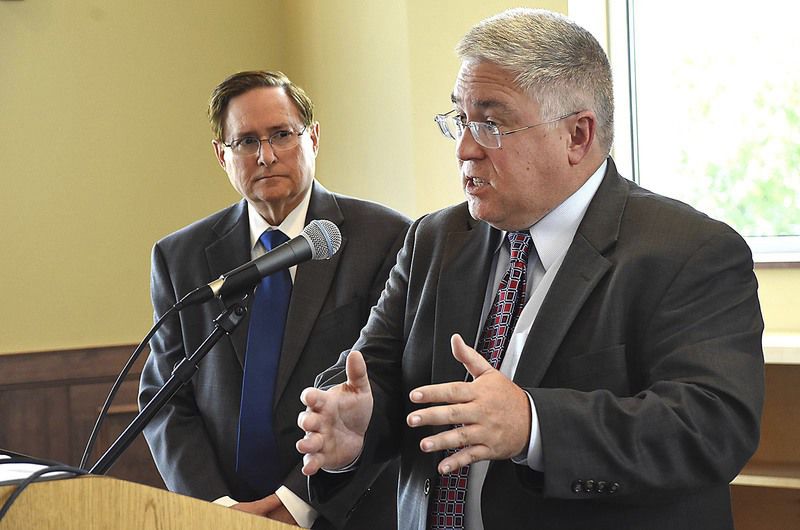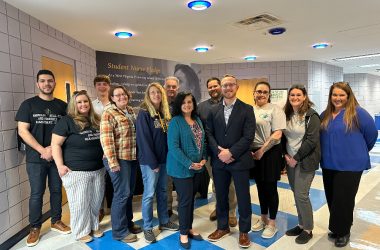By Wendy Holdren
Register-Herald Reporter
LEWISBURG, W.Va. — West Virginia School of Osteopathic Medicine’s Robert C. Byrd Clinic will implement and utilize Attorney General Patrick Morrisey’s recently released best practices to help reduce overprescribing and misuse of opioid drugs.

Morrisey’s guideline for physicians include 15 best practices, which include checking the state’s Controlled Substance Monitoring Program every time an opioid prescription is written, better patient education, improving monitoring and screening of patients and trying non-opioid options first.
WVSOM President Dr. Michael D. Adelman said, “These recommendations provide rational, concrete solutions that will have tremendous effect in our state if broadly used. These guidelines are one of the strongest tools our state has to address this crisis.”
He said the best practices align well with what osteopathic medicine has taught for over a century — treating the whole body, not just symptoms; treating people, not just diseases.
“This is a disease,” Adelman said of addiction. “As physicians we need to train the future physicians about opioid disease and opioid addiction so we don’t continue to have problems in the future. That’s something the school is very dedicated to.”
Since the beginning of their education, Adelman said WVSOM’s students have been learning how to best treat pain patients.
Dr. Craig Boisvert, Vice President for Academic Affairs and Dean, said students are taught how to safely prescribe narcotics, as well as how to work with patients who suffer from substance use disorder.
Through simulations, students learn how to interact with patients who have overdosed or patients seeking drugs to fuel their addiction, which has been a part of the curriculum for more than five years.
“(Implementing best practices) is not so much about adding (to the curriculum), but reinforcing and encouraging people to do the things hopefully they’ve been doing all along,” Boisvert said.
STORY CONTINUES BELOW VIDEO
In Other News: Dr. Gupta on dangers of opioids found on Prince
Adelman encouraged other providers to adopt these guidelines to help fight the overprescribing of opioids and to encourage the practice of better medicine.
The recently finalized project sets forth best practices to reduce the use of prescription opioids by at least 25 percent, while preserving legitimate patient access to necessary treatment.
“There’s no more important issue from a consumer protection perspective in West Virginia than fighting substance abuse,” Morrisey said.
He commended WVSOM for demonstrating its commitment to top-notch healthcare.
“I have great confidence its adoption of our best practices will lead to a significant cut in the prescribing of opioids, especially within our rural communities where its alumni have a huge footprint of success.”
According to a release, WVSOM stands recognized as the nation’s leader in rural primary care and ranked as the No. 12 medical school for family medicine. It now joins another noteworthy list in supporting a plan also endorsed by the American Medical Association, American Osteopathic Association, W.Va. State Medical Association, W.Va. Osteopathic Medical Association and the state’s Boards of Medicine and Osteopathic Medicine.
For the entire set of best practice guidelines, visit wvago.gov.
— Email: [email protected] and follow on Twitter @WendyHoldren






